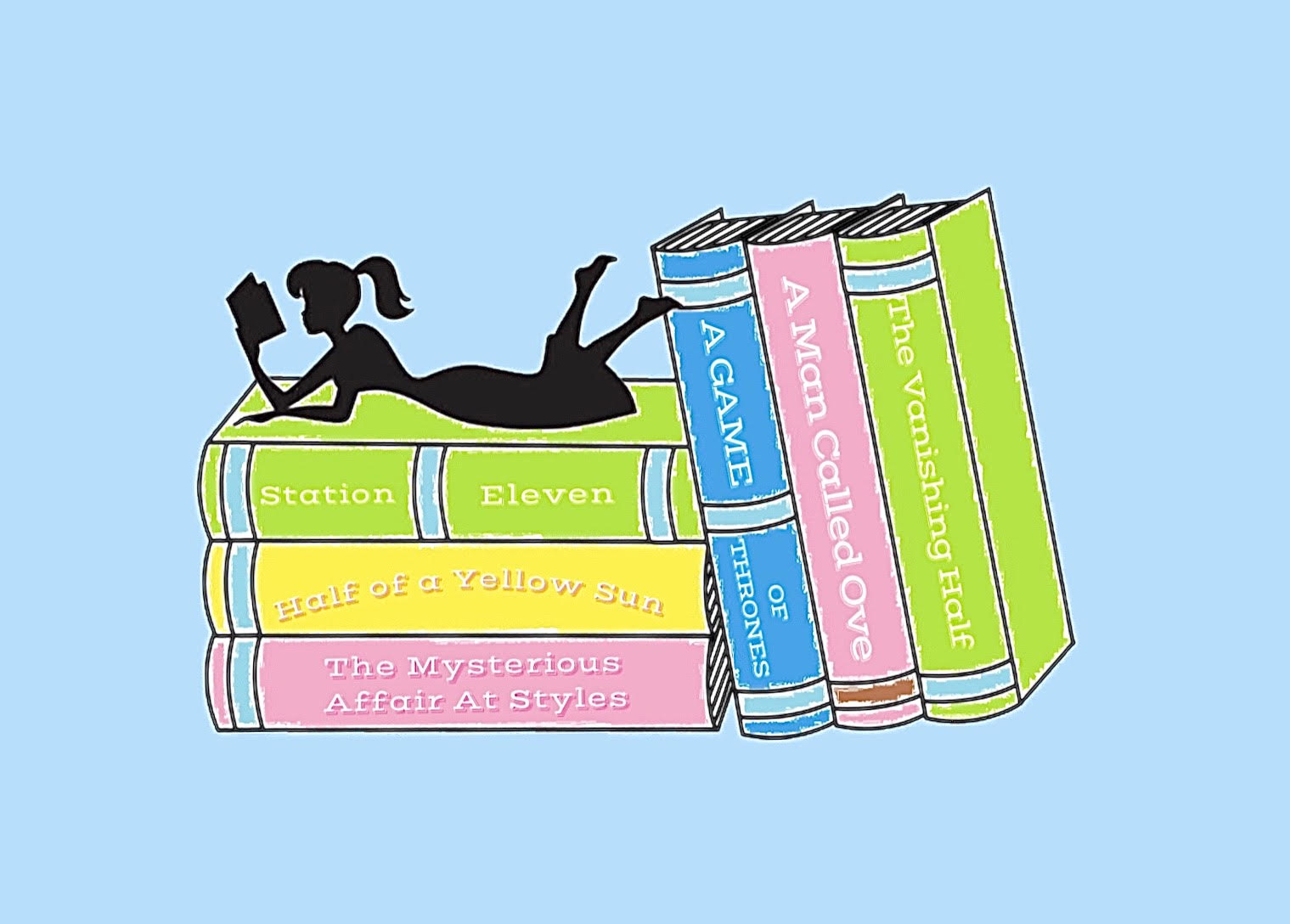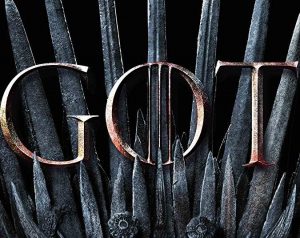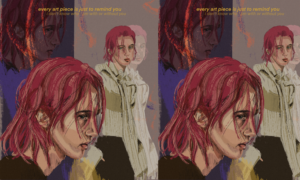During a summer that was not quite as we expected it to be, many Voice staffers rediscovered their love of literature, while others—well-established book nerds—appreciated the extra time to read. Though the semester is well underway, there is always time to discover a new favorite book. To begin your literary journey, Halftime writers present their favorite reads from this summer.
Katie: A Man Called Ove by Fredrik Backman
Most of the books I read this summer were phenomenally written, thoroughly depressing works of historical fiction (Beneath A Scarlet Sky, All the Light We Cannot See, Tattooist of Auschwitz, American Dirt), with the occasional mindless fun beach read (Beach Read and The UnHoneymooners) or modern mystery (freshly born Riley Sager fan over here). Though I highly recommend all of them, the novel that most captured my heart and mind this summer was the very first book I picked up—A Man Called Ove.
This book, by Swedish author Fredrik Backman, was popular back in 2012 when I was in my middle/high school phase of avoiding all literature longer than a couple hundred words unless it was for school. Amidst the great quarantine of 2020, I decided to pick up books for fun again. I gave the first one I could find (Ove) a try one evening, and didn’t put it down until I was choking back alligator tears while turning the final pages at 3 a.m. the next morning. The story follows a man named Ove (shocker) who is, for lack of a better phrase, “stuck in his ways.” Ove is cranky and particular and keeps to himself, expecting others to do the same. When Parvaneh and her young family move in next door, chaos ensues in Ove’s carefully crafted life. What results is a story telling of the triumphs of family and community, the complexities of the individual human experience, and the rediscovery of self-worth after tragedy.
To me, A Man Called Ove is the epitome of a love story, and I don’t mean in just a romantic way, although that is present. Rather, Backman explores self-love, neighborly compassion, and common humanity. It is a remarkably special book, both in content and style. It celebrates and redeems the “curmudgeon” archetype often denigrated to a side character in literature (fun fact: Ove kinda created a curmudgeon character trend back in 2012, #grumplit). Backman’s style is unique—like the title character, it is frank, clipped, and incredibly powerful. This book makes you feel in all the right ways—it makes your heart drop, soar, and whine in an unexpectedly deep, cleansing way. I cannot recommend it highly enough. Also, a movie is in the works starring national treasure Tom Hanks as Ove himself, which is reason enough to read this book.
Roman: The Vanishing Half by Brit Bennett
This summer I started working at my local independent bookstore. The requirements of the job necessitated that I become an expert at talking about books I have never read and convincing people to buy them. And yet, I find it almost impossible to write a review for the best book I read all summer. I guess I’ll start here: The Vanishing Half is a story about identity. Brit Bennett’s second novel follows two generations of Vignes’s: twin sisters Desiree and Stella and their respective daughters, Jude and Kennedy. Desiree and Stella were born and raised in Mallard, a Louisiana town that is well-known for being home to very fair-skinned Black citizens. The twins, feeling hemmed in by their life in Mallard, decide to run away at the age of 16. From there, their paths diverge.
Stella eventually abandons Desiree and spends the rest of her life passing as white. She moves to Los Angeles, marries a white man, has a white daughter (Kennedy), and keeps hidden the secret of her heritage for most of her life. Interestingly, Stella comes to believe that the only people who would be able to recognize her mixed identity are Black people. For this reason, she becomes a loud advocate for keeping her neighborhood segregated and goes to dramatic lengths to keep it that way. Stella spends the rest of her life looking over her shoulder. She never accepts who she is, and the lie she lives haunts her.
On the other hand, Desiree marries a Black man who is abusive, leading her to take her “blueblack” daughter back to Mallard. Despite being white-passing, Desiree never pretends to be anything she isn’t, causing her to be discriminated against and to lose professional opportunities. Luckily, Jude is able to escape Mallard and attend school at UCLA, where her path later converges with Stella and Kennedy’s. Each character in the novel is forced to reckon with who they are and who they choose to be. They find hidden costs when it comes to how they present themselves, and everyone pays a price. The most stirring identity crisis happens within Stella, who must fight to convince the world she is white when she can barely convince herself. As someone who struggles with their ethnic identity, I highly recommend this to anyone who wants a beautifully written story with rich characters and an all too important message.
Annie: The Mysterious Affair at Styles by Agatha Christie
This summer I tore through practically every true crime and mystery documentary on Netflix. Somewhere in the middle of my third mini-series binge, I decided I should probably read a book. Naturally, I picked one by the Queen of Crime herself—Agatha Christie. The Mysterious Affair at Styles is Christie’s debut novel and the first to feature her famous Belgian detective, Hercule Poirot. Honestly, Poirot is reason enough to read this book. He is the most endearing and eccentric character, and it’s fun to observe his musings as he works on a case. Those familiar with the famous detective will probably know him from Christie’s Murder on the Orient Express or Death on the Nile, both of which have had, or will have, recent film adaptations starring Kenneth Branagh (for which I’m very excited).
What I love about this book is that, while it’s not one of Christie’s most recognizable works, it sets the stage for Christie’s style as a writer and serves as the debut for one of the most famous literary detectives. A classic “whodunit” set in a country estate in Essex county, it has the plot twists and red herrings that make every enticing murder mystery. I really enjoyed the suspense of this particular story, the wit of the narrator, and the tales of a very interesting cast of characters. I would definitely recommend this novel, as well as other mysteries from Christie. It’s a quick and exciting read, the perfect binge-worthy book for a pandemic-ridden summer.
Chetan: A Game of Thrones by George R.R. Martin
About halfway through the summer, after burning through the list of movies and TV shows I made back in March, I decided, for the first time in a long while, to read a book for pleasure. I couldn’t think of a better option than A Game of Thrones by George R.R. Martin. It was always a book I wanted to read since I love the show, but I was put off by its length. Midway (hopefully) through the pandemic, when there was nothing for me to do, seemed like the perfect time to start reading it. Like the show, the book is violent, racy, and thoroughly compelling, with more than enough minutiae to make even the most obsessed TV fan find new, subtle details to elevate the story without seeming unnecessary. Anyone who has seen the show would understand the importance of Ned Stark seeing a direwolf that’s been killed by a stag. There’s so much foreshadowing and symbolism in the books that I’d say it’s essential for any serious fan of the TV show to read them. Reading Martin’s epic was the most entertaining part of a gloomy summer for me. I highly recommend it to anyone who needs an escape from this lonely, miserable time.
Savannah: Stay Fanatic!!! Vol. 1 by Henry Rollins
I’m moderately ashamed to say I exited last semester with no real desire to dive into any type of literature. I wouldn’t exactly call myself a bookworm—but I am a music nerd, through and through. I spent my summer listening to everything from Deftones to Megan Thee Stallion, but I also identify as a Henry Rollins enthusiast. If you’re unfamiliar, Rollins is most well-known as the frontman of the American punk band Black Flag, also later forming and fronting the alternative metal outfit Rollins Band. He’s a longtime radio host and spoken word performer, and I like to think of him as an ambassador from the punk world to mainstream pop-culture. When I was in high school, I came across an old television interview he did in the early ’90s. From there, I did a deep dive—watching interviews and performances—which led me to discover ’90s alt-metal and the ’80s D.C. hardcore scene.
This summer, I picked up a copy of his latest book, Stay Fanatic!!! Vol. 1 after failing to push through Joseph Heller’s Catch-22. In Stay Fanatic!!!, Rollins chronicles his adventures as a music maven in a day-by-day logbook, addressing the reader as “Fanatic” in what ends up feeling like correspondence between mentor and student. He writes about traveling to see The Stooges live and about the music he listens to when walking alone at night—situations which some may think of as trivial and inconsequential, but which (for me at least) are wonderfully relatable.
Stay Fanatic!!! Vol. 1 is an ode to music nerds. Rollins manages to zero in on the extraordinary peculiarity and nuance of music and sound in everyday life. While the book isn’t filled with rhetorical devices or allegories, it gives voice to the experience of music enthusiasts everywhere. Rollins’s appreciation for sound shines on every page. It’s a compelling read, and if you’re at all a music nerd, I think you’ll really enjoy it.
Samantha: If We Were Villains by M.L. Rio
It is absolutely no exaggeration to say that this book has become one of my favorite books of all time. An intoxicating dance between past and present, love and heartbreak, sacrifice and betrayal—If We Were Villains holds you captive as you watch everything fall apart for the main cast. Set at the prestigious college of the arts, Dellecher Classical Conservatory, If We Were Villains follows the seven senior members of the school’s theatre group. This college is so cutthroat that only seven students have made it to their senior year; the rest of the once hopeful first years were cut at some point and unceremoniously kicked out. This intense environment is a perfect breeding ground for toxic jealousy and rivalry, a fact that is extremely apparent when you look at the characters. Each one fits a theatre archetype: hero, villain, tyrant, temptress, ingenue, extra, and sidekick. These archetypes have held within the group for years, reflected in both their casting on stage and their real life personalities. That is, until a semester of Shakespearean tragedy is interrupted by a real life loss, changing the group of friends irrevocably.
The story itself is told from the perspective of Oliver Marks, the sidekick of the group. He recounts the events of that fateful year to Detective Colborne ten years later, after being released from prison. The exact events that landed Oliver in prison are slowly revealed throughout the book. Mimicking a Shakespearean tragedy, the chapters of the book (actually labeled as scenes) are arranged into five acts. The majority are told in the past, with chapters from the future opening each act.
A story of dark academia and descent into madness, If We Were Villains draws mind-blowing parallels to Shakespearean tragedy throughout the entire story. None of the characters in this book are good people—in fact, some of them are very bad people—but you will come to love each one of them. The longer I reflect on this book and the more people I rave about it to, the more connections I discover. The performances and theatre are woven intricately into the plot, with events in their lives mirroring those in the play. Heart wrenching confessions are cloaked in lines of Shakespeare yet filled with real emotional turmoil, and events of the future are foreshadowed in a few atypical casting lists. Love and madness run side by side in this beautifully constructed descent into villainy. With a final act that will move you to tears, If We Were Villains will echo in your thoughts long after its final curtain call.
Natalie: Half of a Yellow Sun by Chimamanda Ngozi Adichie
You aren’t going to like this book. I can already tell you that when you finish Chimamanda Ngozi Adichie’s Half of a Yellow Sun, you will feel how I felt: enchantingly agonized—so overcome with unidentifiable emotions that you are relieved that your copy of the book didn’t come with the pictures of emaciated Biafran children that other editions had. Honestly, there’s a high chance that you will hate Half of a Yellow Sun, but I urge you to read it anyway because there are more important reasons to read a book than for enjoyment.
Half of a Yellow Sun is a historical fiction novel about the Biafran War, a secessionist struggle in southeastern Nigeria that prompted international attention with iconography depicting innocent, starving children and stirred the West’s recent collective memory of the Holocaust. I picked up the book because I was already in love with Adichie, from her famous TED talk, to her Beyoncé song cameo, to her other acclaimed works like Americanah and We Should All Be Feminists. Half of a Yellow Sun particularly resonated with me because I am an African Studies major with some background on the nuances of the Biafran struggle. Yet what this novel revealed to me—with its brilliant imagery, complex character development, and stirring political commentary—is that we can never truly understand tragedy through statistics and academic knowledge alone. The unexpected death of a character we have gotten to know throughout the course of hundreds of pages, whose life and love we have been able to read about, is infinitely more jarring than numbing data.
The role of fiction, particularly historical fiction, is to create this intense empathy and awareness. Half of a Yellow Sun begs us to ask: What is worth fighting for? What are we able to forgive? Most people know hardly anything about the continent of Africa, much less Nigerian politics and history. So I recommend Half of a Yellow Sun—if not because you will learn things that will help you better understand our current tumultuous moment, then because, as Adichie writes: “The World was Silent When We Died,” and I believe it is our duty, even years later, to listen.
Sarah: Station Eleven by Emily St. John Mandel
Sometime in late spring, after weeks of social isolation and sensationalist COVID-19 headlines had worn me into a nub of quarantine-induced anxiety, I decided to do quite possibly the worst thing I could have done in the middle of a deadly, world-altering pandemic: read a book about a deadly, world-altering pandemic. Station Eleven, Emily St. John Mandel’s fourth novel, follows a roving Shakespearean acting troupe in a post apocalyptic world ravaged by a mysterious flu with a fatality rate in the upper ninety-ninth percentile.
Mandel’s most effective tool throughout the novel is her use of a non-linear narrative in her depiction of the life and loves of a declining actor whose death onstage during a production of King Lear was the book’s first casualty. His legacy, illustrated through descriptions of his early life and rise to fame, finds purchase in both of the novel’s main timelines, the first of which occurs directly after his death at the onset of the so-called Georgian Flu, and the second occurring twenty years after the pandemic. Familiar characters pop up like Easter eggs throughout the novel, giving readers dramatic and immensely satisfying epiphanies as storylines weave together.
The true feat of Station Eleven, however, is its transcension of its own grim premise. I expected to read the novel with an eye for the dark, finding bleakness mirroring that of the world around me; instead, I found a story of hope and the incredible human ability to find joy in the frivolous and mundane. I went in with a general sense of existential dread, but I emerged with a near-inexplicable sense of peace. This book shows that the worst may well happen; yet, beauty will still exist. And it’s true: In the midst of a pandemic, a nationwide reckoning with anti-Black racism, killer wasps, and dead-or-maybe-not dictators with which 2020 has been rife, pockets of joy exist, found in socially distanced picnics, Twitter banana bread cults, cottagecore TikTok, and so many other expressions of selflessness and kindness in an era defined by faceless chaos. Faith in the endurance of humanity—who had that for apocalypse bingo?






[…] Best books from a quarantined summer The Georgetown Voice “self isolation when:1h” – Google News […]